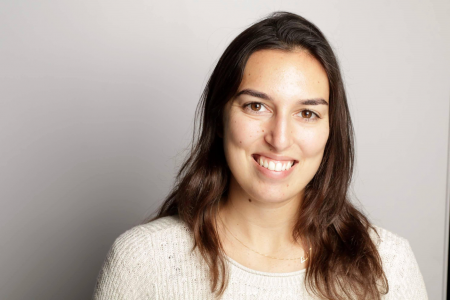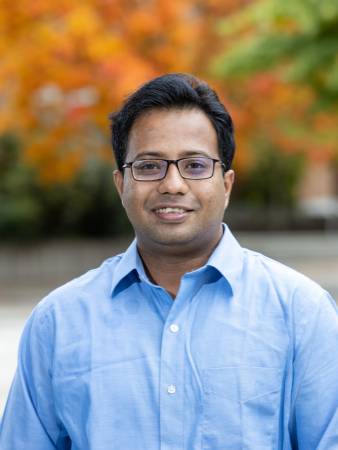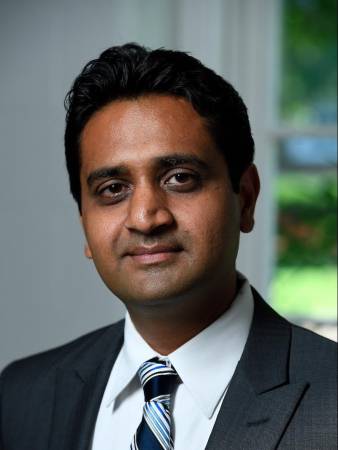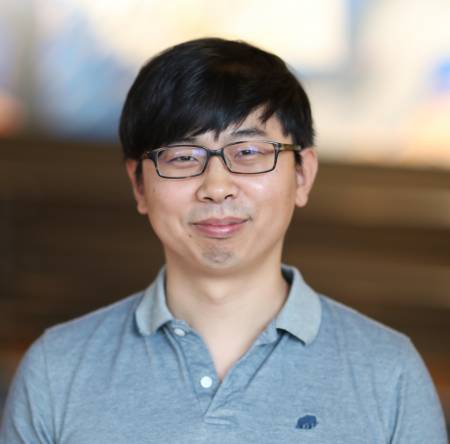VASC Seminar
Leveraging StyleGAN for Image Editing and Manipulation
Abstract: StyleGAN has recently been established as the state-of-the-art unconditional generator, synthesizing images of phenomenal realism and fidelity, particularly for human faces. With its rich semantic space, many works have attempted to understand and control StyleGAN’s latent representations with the goal of performing image manipulations. To perform manipulations on real images, however, one must learn to [...]
Next-Gen Video Communication
Abstract: Video communication connects our world. It is necessary in conducting business, educational and personal activities across different geographical locations. However, the quality of an average user’s video communication is dramatically worse than that of professionally created videos in news broadcasts, talk shows, and on YouTube. This is because professionally created videos are often captured with [...]
Activity Understanding of Scripted Performances
Abstract: The PSU Taichi for Smart Health project has been doing a deep-dive into vision-based analysis of 24-form Yang-style Taichi (TaijiQuan). A key property of Taichi, shared by martial arts katas and prearranged form exercises in other sports, is practice of a scripted routine to build both mental and physical competence. The scripted nature of routines [...]
Domain adaptive object detection
Abstract: Recent advances in deep learning have led to the development of accurate and efficient models for object detection. However, learning highly accurate models relies on the availability of large-scale annotated datasets. Due to this, model performance drops drastically when evaluated on label-scarce datasets having visually distinct images. Domain adaptation tries to mitigate this degradation. In [...]
Visual Understanding across Semantic Groups, Domains and Devices
Abstract: Deep neural networks often lack generalization capabilities to accommodate changes in the input/output domain distributions and, therefore, are inherently limited by the restricted visual and semantic information contained in the original training set. In this talk, we argue the importance of the versatility of deep neural architectures and we explore it from various perspectives. [...]
Topology-Driven Learning for Biomedical Imaging Informatics
Abstract: Thanks to decades of technology development, we are now able to visualize in high quality complex biomedical structures such as neurons, vessels, trabeculae and breast tissues. We need innovative methods to fully exploit these structures, which encode important information about underlying biological mechanisms. In this talk, we explain how topology, i.e., connected components, handles, loops, [...]
Learning generative representations for image distributions
Abstract: Autoencoder neural networks are an unsupervised technique for learning representations, which have been used effectively in many data domains. While capable of generating data, autoencoders have been inferior to other models like Generative Adversarial Networks (GAN’s) in their ability to generate image data. We will describe a general autoencoder architecture that addresses this limitation, and [...]
Building Intelligent and Visceral Machines: From Sensing to Application
Abstract: Humans have evolved to have highly adaptive behaviors that help us survive and thrive. As AI prompts a move from computing interfaces that are explicit and procedural to those that are implicit and intelligent, we are presented with extraordinary opportunities. In this talk, I will argue that understanding affective and behavioral signals presents many opportunities [...]
GANcraft – an unsupervised 3D neural method for world-to-world translation
Abstract: Advances in 2D image-to-image translation methods, such as SPADE/GauGAN, have enabled users to paint photorealistic images by drawing simple sketches similar to those created in Microsoft Paint. Despite these innovations, creating a realistic 3D scene remains a painstaking task, out of the reach of most people. It requires years of expertise, professional software, a library [...]
Learning Optical Flow: Model, Data, and Applications
Abstract: Optical flow provides important information about the dynamic world and is of fundamental importance to many tasks. In this talk, I will present my work on different aspects of learning optical flow. I will start with the background and talk about PWC-Net, a compact and effective model built using classical principles for optical flow. Next, [...]









